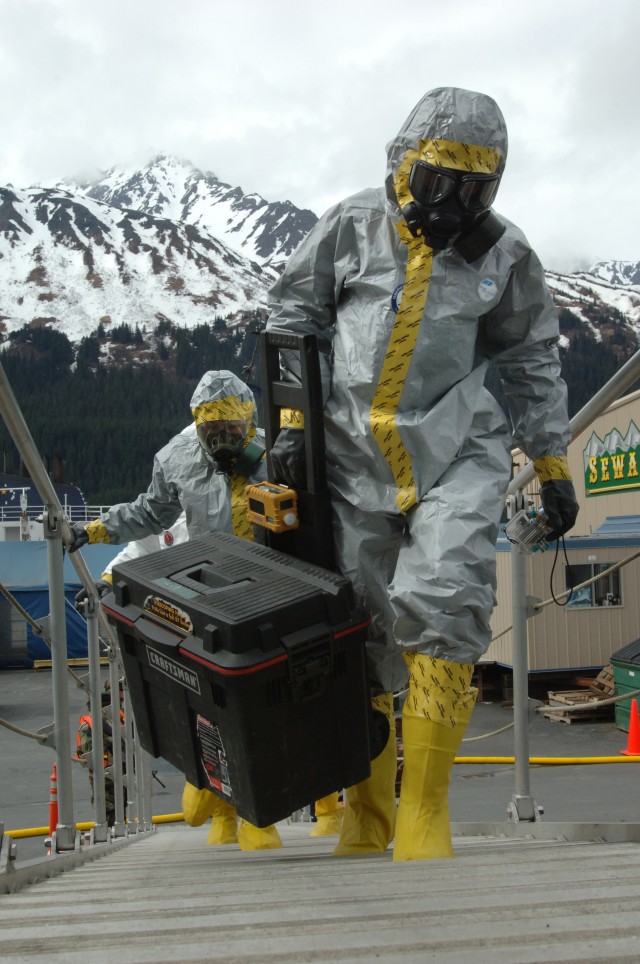
WASHINGTON (Army News Service, July 19, 2007) - The Army and U.S. Northern Command are "keenly aware" of information within the newly released National Intelligence Estimate and are committed to working to ensure terrorists don't succeed in attacking the United States, a NORTHCOM official said.
A declassified version of the report released July 17 notes that Islamic terrorist groups, particularly al Qaeda, are likely to remain a persistent threat to the U.S. homeland over the next three years.
The report paints a picture of terrorists' "undiminished intent to attack the homeland."
"We assess that al Qaeda's homeland plotting is likely to continue to focus on prominent political, economic and infrastructure targets with the goal of producing mass casualties, visually dramatic destruction, significant economic aftershocks and/or fear among the U.S. population," the report states.
NORTHCOM, the Defense Department's lead agency for homeland defense, is working closely with the Department of Homeland Security and other partners to "deter and disrupt, and if necessary, confront any planned attack against the homeland," said Michael Kucharek, a spokesman for NORTHCOM and North American Aerospace Defense Command.
The command is "focused on ensuring that we disrupt and defeat those who wish to kill innocent civilians by any means possible," he said.
NORTHCOM maintains a representative in the National Counterterrorism Center and is connected to more than 150 operation centers throughout the United States, Mr. Kucharek explained.
This network continuously evaluates all credible intelligence information to establish appropriate response-force posture levels and force-protection levels for Defense Department installations nationwide, he said.
Meanwhile, "U.S. Northern Command has directed all subordinate commands to increase their vigilance, to take precautionary actions and to review their local force protection procedures," he said. Due to security considerations, the command does not discuss the specific types of security measures it is taking.
NORAD, the U.S.-Canadian command that provides aerospace warning and control for North America, is a key player in that effort. NORAD is "standing vigilant to protect our homelands from any emerging threat by working in close cooperation and coordination with our partners in the U.S. and Canada and their respective government agencies," Mr. Kucharek said.
In addition to the Army, seven other intelligence organizations within the Defense Department contributed to the National Intelligence Estimate: the Defense Intelligence Agency, National Security Agency, National Geospatial-Intelligence Agency, National Reconnaissance Office, and Navy, Air Force and Marine Corps intelligence.
(Donna Miles writes for the American Forces Press Service.)

Social Sharing